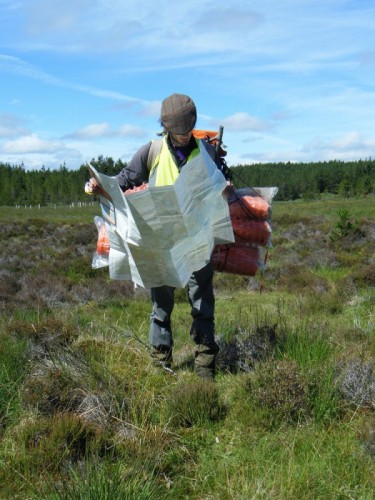Early career development: why it matters

Through the Registered Organisation scheme, CIfA is ensuring archaeologists undergo a period of formally supervised professional training, placing them on the pathway to professional accreditation. Structured training programmes have been used very effectively and successful models exist which organisations can adapt to their own training needs. A professional, skilled and competent workforce is key to the sector's aspirations for parity in remuneration and respect. Structured training can provide this.
The National Occupational Standards in Archaeological Practice (NOS) break down the knowledge and skills needed to perform virtually every aspect of work undertaken in the sector. When you choose to train in a particular skill or set of skills, all you need to do is identify the appropriate Standard and its requirements and ensure that, after training, the Standard has been met.
What can you do?
Download your copy of CIfA's professional practice paper - An introduction to providing career entry training in your organisation (PDF).
Find out how to map learning objectives to National Occupational Standards (Word docx).
Look at this example of a plan to train excavation skills to Practitioner level (PDF).
Carry out a skills audit for your organisation. View an example of a template for conducting a skills audit against the National Occupational Standards in Archaeological Practice:
- Skills audit template (PDF)
Read CIfA’s Guide to developing a training plan (PDF) which defines what is meant by a training plan along with some ideas about how to develop one.
See the links below for information on specific skillsets (all documents are Word doc files unless specified):

- Archaeological archives
- Archaeological excavation and supervision
- Archaeological Fieldwork
- Archaeological geophysics
- Archaeological survey
- Archive archaeology
- Building recording
- Building research and survey
- Buildings and landscape survey
- Buildings survey and interpretation
- Community archaeology
- Digital archaeology
- Environmental post excavation
- Field archaeology
- Heritage advice
- Heritage consultancy
- Heritage management - designation
- Historic environment advice
- Historic environment management
- Integrated heritage management

Remember to include a learning agreement so that your trainees know what they can expect from their training, and what will be expected from them. View an example of a learning agreement (Word doc).
Get your training plans and learning opportunities CIfA Approved to highlight their high quality. CIfA approved employer training schemes are accepted by the Construction Skills Certification Scheme and trainees on them are eligible to apply to CSCS for a Trainee card after passing the CITB Operatives level 'Health, safety and environment' test.
Offer trainees the National Vocational Qualification in Archaeological Practice (NVQ) which provides a route map to meeting the NOS, guiding candidates to bespoke sets of new skills or competencies at entry level. NVQs are seen as a route to professional status by CIfA, who offer fast track accreditation at Practitioner (PCIfA) level to those with a level 3 NVQ in Archaeological Practice.
Take on an apprentice. New apprenticeships for historic environment roles in England have been approved for delivery. Email heritageapprenticeships@historicengland.org.uk for further information. Skills and training in the UK are devolved issues and different processes are in place for the development and delivery of apprenticeships in England, Scotland, Wales and Northern Ireland. In Scotland, a group of employers are working with CIfA, sector partners and colleges to develop vocational provision including Modern Apprenticeships. Contact cara.jones@archaeologists.net for more information.
Look out for graduates with CIfA Accredited degrees which acknowledge practical skills and competencies built into degree programmes.
Advertise your training. Our weekly Jobs Information Service & Training (JIST) bulletin is a comprehensive source of information about work and training opportunities in archaeology and related disciplines and is sent to CIfA members. It includes adverts placed directly by employers and all archaeological, heritage, research and training opportunities that appear in the national press and specialist journals during that week. CIfA Approved training and CPD can be advertised free of charge.
Be proud of your training and enter it for the Archaeology Training Forum Award. The Archaeology Training Forum (ATF) has been recognising excellence and innovation in training, learning and professional development since 2011 through its award.


